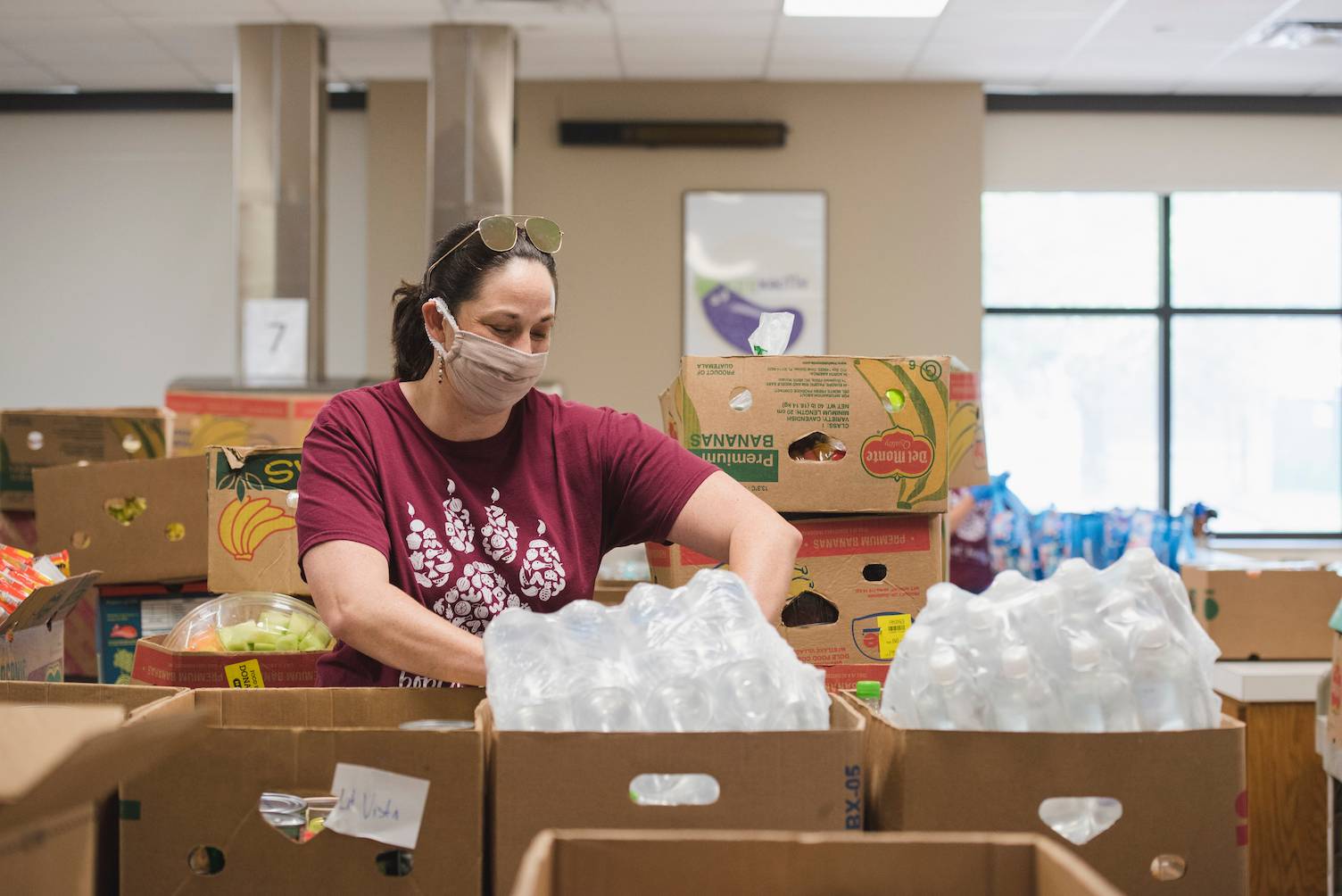Bobcat Bounty adjusts operations to continue serving students
Emma Carberry | April 2, 2020

Texas State University students are adjusting to different learning environments, new living arrangements and unexpected distancing from family and friends. In this climate, students are faced with many catalysts for uncertainty. To alleviate some of this unease, Texas State’s on-campus food pantry, Bobcat Bounty, has adjusted their operating model so that they can continue to serve students in a time of extreme need.
Food insecurity is an anxiety approximately 40% of Texas State students were coping with prior to COVID-19’s arrival, and one that has not faded since. According to Bobcat Bounty graduate assistant Kelsey Walling, it is more imperative now that Bobcat Bounty continue its distributions. Their hope, she says, is to reduce food insecurity for students so that they are empowered to succeed in their academic lives and persevere through this unsettling time.
Under their new model, Bobcat Bounty will continue food distributions for the remainder of the semester every Thursday from noon to 2 p.m. and 5 p.m. to 7 p.m. outside the Family and Consumer Sciences building. However, their typical grocery shopping-style experience has been replaced with a pre-bagged grocery system to protect the health of volunteers and clients. According to Walling, these curated bags contain non-perishable items such as high-protein foods and healthy carbohydrates, as well as fresh produce.
When preparing the bags of groceries, all Bobcat Bounty staff members and volunteers wash their hands immediately upon arrival and put on gloves and face masks. All food contact surfaces and tables are sanitized with a CDC-approved disinfectant before they are used. As bags are packed, staff work at a 6-foot distance from each other, with a two-person limit per room. Throughout the bagging process, all surfaces are consistently sanitized after contact.
For the remainder of the semester, Bobcat Bounty clients will be asked to sign up online for designated pick-up times so that health and safety protocols can be followed at each distribution. On distribution days, clients arriving in vehicles may stay in their vehicles and a Bobcat Bounty staff member will bring their groceries directly to them. Clients without vehicles will form a (socially distanced) line, take their pre-bagged groceries from a table and return to their cars. Importantly, Walling notes that if a student is feeling sick or ill , they do not have to miss out on their food pick up. Sick students should designate a proxy to pick up food on their behalf and notify Bobcat Bounty. Proxies may also sign up to pick up food for themselves.
Students who are interested in Bobcat Bounty distributions can stay updated through their Facebook, Twitter and Instagram accounts or email bobcatbounty@txstate.edu to be added to their mailing list. Walling stresses the importance of students following the sign-up guidelines so that food can be distributed safely.Walling, who is a graduate student in human nutrition, adds that Bobcat Bounty has benefitted from a strong partnership with the Hays County Food Bank, which is experiencing an increase in clients. Community members who are interested in supporting Bobcat Bounty during this time can donate directly to the Hays County Food Bank so that they can purchase food and supplies for clients facing food insecurity throughout the county.
Student Emergency Services is here to help: Students who are experiencing extreme financial hardship as a result of COVID-19 may apply for student emergency services from the Student Emergency Services Office. Limited financial assistance is also available and students can apply by submitting the Emergency Funding Request Form.
Share this article
For more information, contact University Communications:Jayme Blaschke, 512-245-2555 Sandy Pantlik, 512-245-2922 |